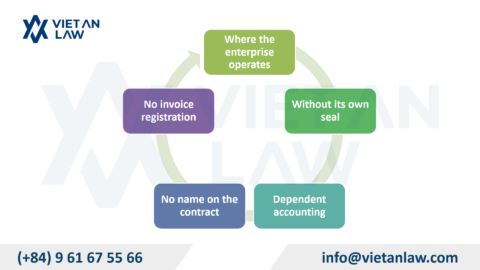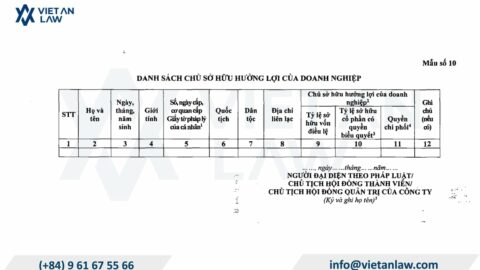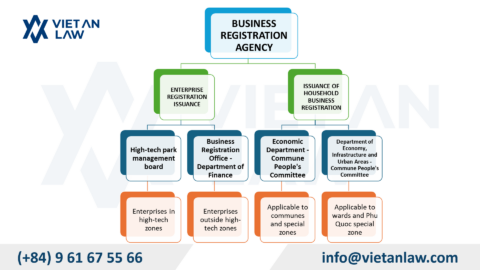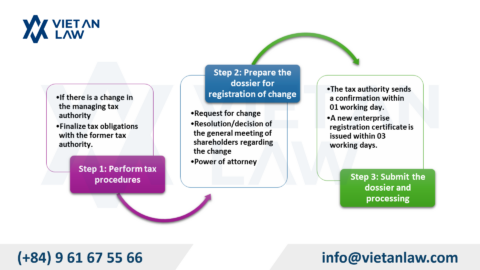Contract law plays a crucial role in Vietnam’s legal system, as most societal transactions, whether for business purposes or to meet daily living needs, involve contracts. Vietnam’s contract law is currently governed by various legal documents, including the Civil Code, the Commercial Law, and the Insurance Business Law. However, the Civil Code is considered the primary law governing general contract matters, serving as the foundation for contract law and regulating contractual relationships established on specific principles. In this article below, Viet An Law will present the contractual governing principles in Vietnam as current regulations.

Table of contents
Vietnamese Civil Code of 2015
According to Article 385 of the Civil Code of 2015, a contract is “an agreement between the parties on the establishment, modification, or termination of civil rights and obligations.” As such, a contract is an agreement, a consensus of will between subjects, aimed at creating, modifying, or terminating civil rights and obligations.
Contractual governing principles are understood as general rules established by law that play a guiding and directing role for all contractual law provisions. Contractual governing principles are highly significant in applying, drafting, and constructing a contract based on the parties’ unified will and ensuring the legitimate rights and interests of the parties involved.
The Civil Code of 2015 only provides a set of general principles for the entire Civil Code, which are highly generalized and significantly reduce the number of principles compared to the Civil Code of 2005. In the Civil Code of 2015, the contract regime is located in the third part of torts under the title “Obligations and Contracts.” This part does not contain any provisions on the general principles of contracts in general or on the conclusion and performance of contracts in particular (i.e., contractual governing principles). The omission of specific contractual governing principles in the Civil Code does not mean that no principles are followed when concluding and performing contracts; rather, the conclusion and performance of contracts must comply with the fundamental principles of Vietnamese civil law.
Based on Article 3 of the Civil Code of 2015, which stipulates the fundamental principles of civil law, two fundamental principles of private law can be derived: the principle of freedom of will and the principle of good faith. In this context, the principle of freedom of will serves as the basis for its two sub-principles: the principle of the binding force of contracts and freedom of will limited by public order.
Thus, Vietnamese contract law has two fundamental principles:
The principle of freedom of will in contract law is understood that the parties are free to conclude contracts or agreements on the establishment of civil rights and obligations according to their own will, provided that it does not violate public order. A person has the right to freely enter into contracts, which means that they are free to decide how they will be bound. Once they have declared their will to be bound, they are no longer free to perform their obligations but will be compelled to do so. Based on Clause 2 of Article 3 of the Civil Code of 2015, the principle of freedom of will is stipulated as follows: “Individuals and legal entities shall establish, perform, and terminate their civil rights and obligations based on freedom, voluntary commitment, and agreement. Any commitment or agreement that does not violate the law or contravene social morality shall have effect for the parties and must be respected by other subjects.”
In the context of a deeply integrated and developing economy, some contracts are subject not only to Vietnamese law but also to multiple sources of law in cases where the contract has foreign elements. Therefore, at this time, based on the principle of freedom of will, the freedom of the parties to choose the applicable law should be one of the foundations of the system of conflict of laws rules in matters related to contractual obligations. The principle of freedom of will is manifested through the recognition of the law agreed upon by the parties as the law applicable to the contract.
Article 6 of the Civil Code 2005 stipulates the principle of good faith as follows: “In civil relations, the parties must be good faith and honest in establishing and exercising civil rights and obligations, neither side can deceive the other.” But in the Civil Code 2015, in Clause 2, Article 3, the paragraph “neither party may deceive the other party” was omitted from the principle of good faith: “Individuals and legal entities must establish, implement, and terminate their civil rights and obligations in good faith and honestly”. Thus, it can be seen that the principle of good faith will be expressed in 3 stages of contract adjustment:
The principle of good faith will be expressed in terms of a tool to adjust injustice between the parties because of bad faith acts performed in the pre-contractual period, which is generalized into two groups: Bad faith leads to a contract not being signed, and bad faith leads to a void contract.
In adjusting contracts, the principle of good faith is expressed in establishing the contract and its conditions depend on the will of the parties and is a tool to ensure a balance of the rights and interests of the parties when entering into a contract. A legally entered contract cannot be implemented smoothly due to:
In addition, during this stage, this principle may not be associated with the will of the parties at first, but rather with the equality of interests between the parties or the acceptance of primary implementation rather than correct implementation. and full contractual obligations, goodwill is sympathy for the other party’s shortcomings in performing the obligations.
The principle of good faith will be expressed in the context of a tool to correct injustice between the parties because of bad faith behavior in exercising the right to terminate the contract by limiting the right to terminate the contract of the breached parties.
Above is some information about contractual governing principles in Vietnam. If you have questions or need advice on corporate law or contract drafting, please contact Viet An Law Firm for the most effective support.




